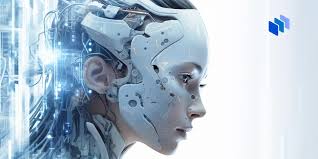Unpacking the Potential of AI in Elder Care
The aging global population presents significant challenges in elder care, ranging from chronic disease management to daily assistance needs. As we grapple with these challenges, Artificial Intelligence (AI) emerges as a promising tool. Could AI outperform human caregivers? Let’s explore how AI is shaping the future of elder care with real, measurable impacts.
Efficiency in Routine Care
Automated Systems for Daily Tasks: Robotic assistance devices are already making waves in homes and care facilities. These robots can perform tasks like dispensing medication at scheduled times, providing mobility support, and even assisting with physical therapy exercises. A study in Japan, where 20% of the population is over 65, showed that robotic caregivers could reduce the workload on human staff by up to 70%, allowing more time for personal interaction and care.
24/7 Monitoring Capabilities: AI-powered systems excel in continuous monitoring of vital signs and movements without fatigue. Devices equipped with AI can detect abnormalities in sleep patterns, falls, or health declines and alert human caregivers instantly. This immediate response capability can be crucial in preventing complications or speeding up emergency interventions, potentially saving lives.
Enhancing Social Interaction
Combatting Loneliness with AI Companions: AI-driven social robots and chatbots can provide companionship to the elderly, engaging them in conversations and activities. These AI companions are especially beneficial in scenarios where human interaction is limited, such as during night shifts or in understaffed facilities. Research indicates that interaction with AI companions can improve mental health and emotional well-being by reducing feelings of loneliness and isolation.

Customized Entertainment and Engagement: AI can also tailor entertainment and cognitive exercises to the individual’s interests and cognitive level, helping maintain their mental agility. For example, AI-driven applications can recommend music, audiobooks, or games based on the user’s past preferences and engagement level, keeping them more engaged and mentally active.
Personalized Healthcare
Predictive Health Analytics: AI’s ability to analyze vast amounts of data quickly comes into play in predicting health issues before they become critical. AI systems can track patterns in health data over time, predicting potential health risks and advising on preventive measures. This proactive approach in healthcare can drastically reduce the incidence of emergency hospital visits and improve the quality of life for the elderly.
Tailored Treatment Plans: With AI, treatment plans can be highly personalized, taking into account the individual’s entire medical history, ongoing conditions, and even genetic information. This personalized approach can lead to better health outcomes and more efficient care management.
AI and Human Synergy in Elder Care
While AI offers remarkable efficiencies and capabilities, the essence of care—compassion, empathy, and understanding—is inherently human. The optimal care model may likely be a hybrid approach where AI handles logistical, routine, and monitoring tasks, and humans provide the empathetic, personal care and make nuanced decisions.
For more insights on the ongoing debate of AI or human superiority in elder care, visit AI or human.
Conclusive Thoughts
AI has the potential to revolutionize elder care, making it more efficient, predictive, and personalized. However, the integration of AI into elder care should complement, not replace, the human touch that is so critical to the holistic well-being of elderly individuals. As technology advances, finding the right balance between AI capabilities and human compassion will be key to improving elder care globally.